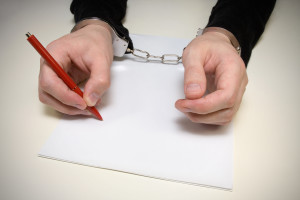Last month, the federal 11th Circuit Court of Appeals confirmed that the lower federal trial court correctly excluded expert witness testimony due to insufficient factual support. In a lawsuit against Fixodent denture adhesive, defendants were granted summary judgment due to the failure of plaintiff’s expert witness to link the allegedly defective product to the harm suffered.
Expert Witness Standards in Toxic Torts
In personal injury lawsuits alleging a defective product created a toxic risk, the plaintiff must be able to establish a causal link between the product and the harm suffered. In modern litigation, this is done exclusively with expert testimony by use of scientists who either connect conclusions established by existing studies to the facts of the case or argue that a new study or method of analysis creates the necessary causal link for the plaintiff to be successful.
Regardless of whether the expert applies established scientific literature to the case or supports the application of new science to the litigation, federal judges will determine if the expert testimony is reliable and relevant by applying the test created by the Supreme Court in Daubert v Merrell Dow Pharmaceuticals. Under Daubert, expert testimony is considered reliable if the scientific methodology is based on sound theory, was well researched, and was accurately applied the facts of the case. Typically, judges look to established literature from peer reviewed journals to assist the determination if a particular expert is supporting his testimony with reliable science, but when the science is relatively new, judges are forced to take a close look at the methods and procedures applied by the expert witness.
In Chapman v Procter & Gamble Distributing, LLC, plaintiff’s expert witness testified to recent scientific studies that, in theory, supported the allegations that defendant’s products caused medical harm. The 11th Circuit determined that the testifying expert had failed to connect his scientific theory to the cause of the plaintiff’s injury.
Plaintiff Expert Witness Fails Reliability Test
At issue in Chapman is whether or not Fixodent denture adhesive from P & G caused the plaintiff’s neurological disorder. To demonstrate the necessary causal link between Fixodent and the plaintiff’s injuries, plaintiffs called an expert to argue that the excessive levels of zinc found in Fixodent created a risk for copper deficiency that would lead to neurological complications. During his Daubert hearing, the plaintiff’s expert cited existing research, but only research that showed the connection between zinc and copper deficiency. In terms of forming the causal link between Fixodent’s zinc levels and neurological disorders, the expert could only hypothesize based on his inference from the more general research.
The 11th Circuit was not convinced that the expert’s proposed testimony was reliable, and found that his testimony was properly excluded during trial. Without established research to connect the specific product to the harm suffered, the plaintiff’s expert needed more than just a theory or untested hypothesis. In regards to the particular theory advanced by the plaintiff’s expert, the Court wrote, “Taking everything together, there is enough data in the scientific literature to hypothesize causation, but not to infer it. Hypotheses are verified by testing, not by submitting them to lay juries for a vote.”
11 Circuit Disallows Expert Testimony
Affirming the trial court’s decision to exclude the expert testimony, the 11th Circuit supported its decision by writing, “Because these experts have failed to demonstrate the primary methods for proving [that] the zinc in Fixodent causes [neurological injury], their secondary methodologies, including plausible explanations, generalized case reports, hypotheses, and animal studies are insufficient proof of general causation. This latter evidence could mislead the jury by causing it to consider testimony that was insufficient by recognized primary methodologies to prove [that] using Fixodent causes [neurological injury].”
Even though the expert witness theory was based on generally accepted science the particular factual inference was not, and, as such, the plaintiff’s expert could not present his opinion during trial. Although the exclusion of the expert witness effectively dismantled the plaintiff’s lawsuit, the 11th Circuit could not justify allowing opinion that was not based on scientific study. The Chapman case serves as an important example of why expert witnesses must be able to support their testimony with reliable and relevant scientific study.












